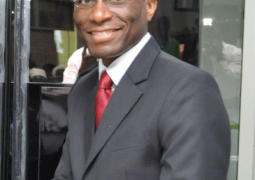Mr Barrow was speaking at the ActionAid Conference Hall yesterday during the opening of a two-day validation of the National Condom Strategy 2015 review when he made these remarks.
He said they had significant improvement as far as the response was concerned. “We have been using condoms in The Gambia for the past 20-30 years as part of birth control, HIV/AIDS prevention and other STIs, which is critical not only for the survival of people who will otherwise be infected with HIV/AIDS but critical to maintain a youthful population to strengthen our economy,”he said.
He said the mandate of ActionAid International The Gambia is about poverty eradication which cannot be achieved if the youth are not well.
“To make sure the youth are not sick we will have to look at issues around preventing them from getting diseases,” he went on, saying that one of the ways of preventing the youth from getting HIV/AIDS is by using condom.
His office will continue to endeavour to do their best in ensuring they achieve the best for the country, he remarked.
They hope participants would critical review the document as it is important for them to get a document that is in the best of time and facilitate access to free, affordable or quality condoms, he stated.
Jainaba Nyang-Njie, Senior Manager, Communications & Documentation at ActionAid International The Gambia, in chairing the opening ceremony, said there are estimated 22,432 adults living with HIV/AIDS in The Gambia.
“Unprotected intercourse is the most common mode of transmission of HIV/AIDS pandemic,” she explained while describing the disease as devastating and affecting the most productive age group of the population.
“Using condoms has been identified in our National HIV/AIDS Policy of 2014-2020 and the National HIV/AIDS Strategic Framework 2013-2019 as one of the major ways of preventing the spread of HIV/AIDS,” Madam Nyang-Njie said, adding that condoms are known to be very effective in preventing pregnancies and other Sexually Transmitted Infections hence condoms should be available and accessible to all women, men and young people, CSWs and MAREs in The Gambia.
Sira Ndow, Country Director UNAIDS, in her remark, said there had been a lot of work done on distribution and making condoms accessible to the population but “interventions have not been coordinated”.
The strategy, she added, aims to coordinate the condom intervention by civil society, NGOs, development partners and the national government.
“The strategy’s aim is to ensure that we have access to quality condom at free or affordable prices to all people who need it,” she said.
“For it to have impact on the response there is need for it to be accessible as accessibility has been a major challenge to all those who need it, thus the impact has not been that significant.”
She said further that making quality condoms accessible to all those who need it, be it the effected population, the youth, the critical mass who are very vulnerable to the HIV/AIDS disease, will be a major achievement,
She urged participants to critically scrutinize the document so that it becomes something user friendly as well as makes a difference in the national response programme.
Alpha Khan, Deputy Director of National Aids Secretariat, also spoke briefly on the importance of the subject at the opening ceremony.




